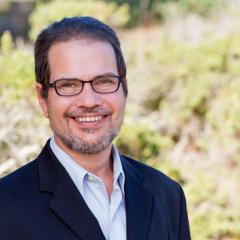Community engagement on mosquito control
The goal of American Bird Conservancy's project under this Switzer Network Innovation grant was to develop a comprehensive community engagement strategy that would enable a fair and transparent consideration of a biotechnology approach to addressing the threat of avian malaria in Hawai'i. Hawai'i has an extremely high rate of extinction for birds, and introduced mosquitoes and the diseases they transmit are a leading threat. A new biotechnology approach, called the Wolbachia sterile insect technique, shows great promise for safely controlling mosquitoes that transmit diseases to humans, and research is underway to test whether this will also work to reduce the species of mosquito that transmits avian malaria. Community engagement and support is critical to the success of developing and eventually implementing the solution in Hawai'i.
With funding support from the Robert and Patricia Switzer Foundation, American Bird Conservancy ("ABC") was able to connect with Switzer Fellow Jonathan Scheuer, an environmental consultant in Hawai'i, and benefit from his expertise in managing environmental conflicts that involve cultural, government, and conservation stakeholders. Jonathan provided valuable input on effective project leadership and facilitated six Steering Committee meetings to gain clarity and forge consensus among the group on details of a Community Engagement Strategy (CES). Jonathan has completed a draft of the CES, a key output of this grant, and it is currently being reviewed and revised by the Steering Committee. This draft was also shared with Fellow Jason Delborne for comment. Jason specializes in evaluating the social, political, and ecological context of using technological tools to solve environmental issues.
Finally, Switzer Fellow Brad Keitt acted as this project's coordinator for ABC, and through his leadership the organization was able to leverage the investment of the Robert and Patricia Switzer Foundation for additional funding and support. For example, he helped ABC recruit a candidate for the Cornell University Atkinson postdoctoral fellowship, and aid in the application process. We were excited to learn in late 2018 that the post doc was awarded to Dr. Katherine McClure, who will work on a key component of the project: developing an optimal Wolbachia-mosquito release strategy, and creating a framework for evaluating success. In addition, Brad helped secure the funding needed to hire a dedicated coordinator for the Steering Committee who is responsible for ensuring tasks and milestones are advanced in a timely manner. The coordinator, Teya Penniman, has well over 20 years' experience working on complex conservation issues in Hawai'i, with a focus on invasive species.


